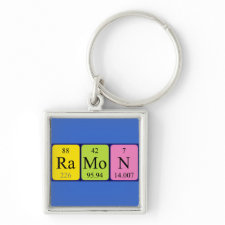
Authors: Gutierrez-Climente R, Gomez-Caballero A, Guerreiro A, Garcia-Mutio D, Unceta N, Goicolea MA, Barrio RJ
Article Title: Molecularly imprinted nanoparticles grafted to porous silica as chiral selectors in liquid chromatography.
Publication date: 2017
Journal: Journal of Chromatography A
Volume: 1508
Page numbers: 53-64.
DOI: 10.1016/j.chroma.2017.05.066
Alternative URL: http://www.sciencedirect.com/science/article/pii/S0021967317308051
Abstract: The work presented here explores the grafting of molecularly imprinted nanoparticles (MIN) on silica beads for the development of new chiral stationary phases (CSP). Both solid-phase imprinting and precipitation polymerisation were tested for MIN synthesis though the latter approach was the only one that provided efficient chiral selectors. MIN particles were prepared by iniferter polymerisation initiated by UV radiation, using itaconic acid as functional monomer and ethylene dimethacrylate as cross-linker. This resulted in particles with an average size of 249.0 ± 4.0 nm which were covalently immobilised onto chromatographic silica beads. The resultant CSP based on the composite silica beads-MIN was capable of resolving the racemate of the antidepressant drug citalopram and also separating its major metabolites by liquid chromatography, with better efficiency and peak symmetry than other MIP based CSP. The methodology presented here allowed for the quantification of the pharmacologically active enantiomer (+)-(S)-citalopram (SCIT) and its main metabolites (+)-(S)-desmethylcitalopram (SDCIT) and (+)-(S)-didesmethylcitalopram (SDDCIT) in urine, registering mean recoveries that ranged from 91.5 to 103.7% with RSD values that were below 10% in all tested concentration levels (0.1, 0.75 and 5 μg mL-1), which confirmed method suitability for the intended application
Template and target information: (+)-(S)-citalopram, SCIT, (+)-(S)-desmethylcitalopram, SDCIT, (+)-(S)-didesmethylcitalopram, SDDCIT
Author keywords: Solid-phase imprinting, precipitation polymerisation, Molecularly imprinted polymers, chiral selector, nanoparticles



Join the Society for Molecular Imprinting

New items RSS feed
Sign-up for e-mail updates:
Choose between receiving an occasional newsletter or more frequent e-mail alerts.
Click here to go to the sign-up page.
Is your name elemental or peptidic? Enter your name and find out by clicking either of the buttons below!
Other products you may like:
 MIPdatabase
MIPdatabase









